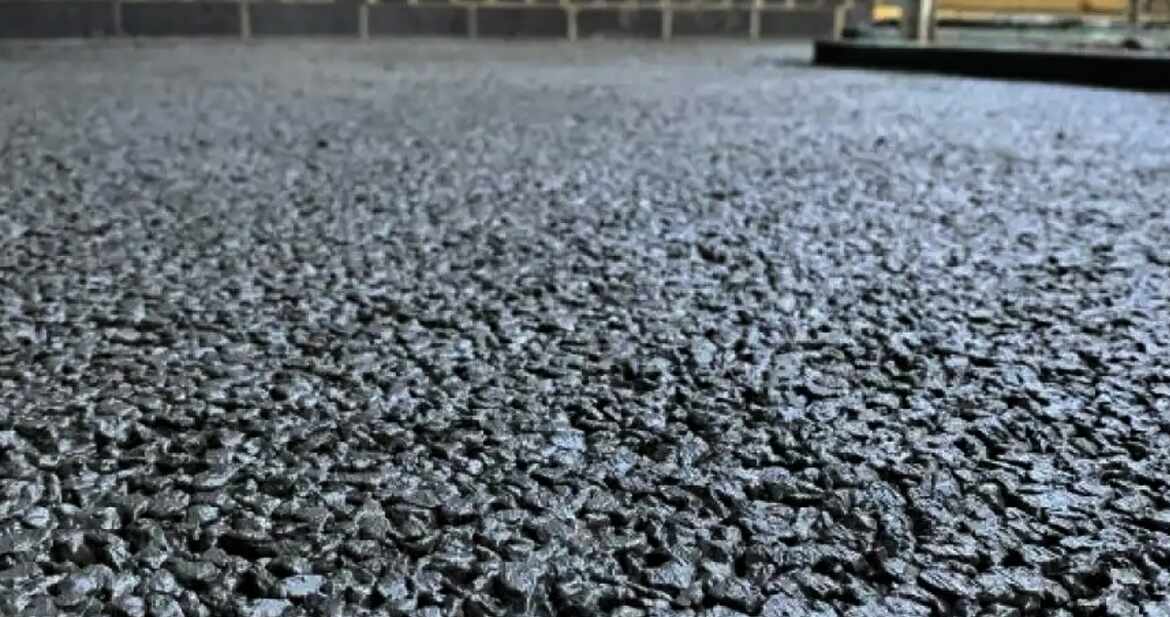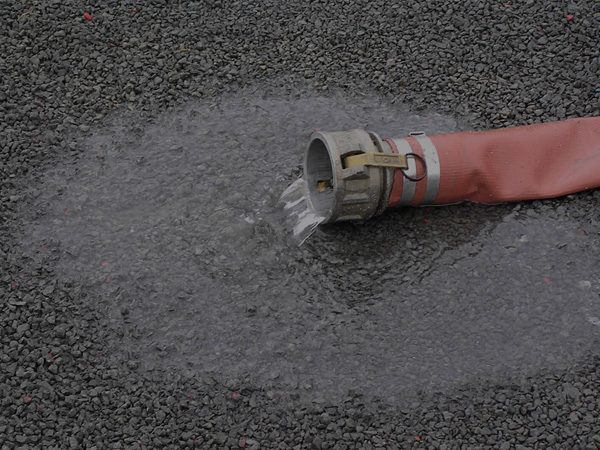Permeable Concrete | As Strong as Our Promise for Public Space Landscaping
- You are here: Home
- Services
- Permeable Concrete

Permeable Concrete Or Pervious Concrete is Changing The Way Public Spaces Are Landscaped
Permeable concrete, also known as Porous Concrete, Pervious Concrete, Gap Graded Concrete, No-Fines Concrete, and Enhanced-Porosity Concrete, is making waves in Melbourne’s urban landscape. This groundbreaking construction material, resembling regular concrete, holds the potential to revolutionize how we design and build public spaces. In this article, we will delve deep into the world of the best concrete, exploring its characteristics, applications, and the remarkable benefits it brings to both the environment and our finances.
What is Permeable Concrete?
This is a unique construction material that shares some similarities with conventional concrete. It’s composed of a mixture of cement, water, and coarse aggregate, with a distinct lack of fine aggregate (sand). This absence of fine aggregate results in a concrete structure that boasts 15% to 25% voids, ensuring an impressive water flow rate of 480 inches per hour or more. While it may have a reduced strength compared to traditional concrete due to its higher porosity and lack of mortar paste, it is perfectly suitable for most applications.
Natural Stone Carpets concrete is a game-changer because of its remarkable ability to mimic nature’s water filtration process. Unlike traditional concrete, which allows rainwater to run off, potentially causing flooding and pollution, concrete enables rainwater to pass through it and into the ground below. This ingenious mechanism reduces runoff, replenishing underground aquifers and preventing water pollution by trapping suspended solids and pollutants.


Applications of Permeable Concrete
Permeable concrete’s versatility has led to its widespread use in various applications, transforming the way we construct public spaces. Here are some of the common applications:
Low-volume Pavements
This concrete is an ideal choice for low-volume pavements, such as pathways in parks and recreational areas. Its ability to drain water effectively helps maintain a safe walking surface even during heavy rainfall.
Residential Roads and Driveways
Homeowners are increasingly turning to permeable concrete for their driveways and residential roads. This not only prevents runoff but also reduces the risk of flooding in residential areas.
Sidewalks
Sidewalks made from this concrete offer a pedestrian-friendly surface while efficiently managing rainwater, and minimizing puddles and slippery conditions.
Parking Lots
Permeable concrete parking lots are gaining popularity for their eco-friendly approach. They reduce the risk of surface water runoff and help recharge groundwater.
Low-water Bridges
This kind of concrete is an excellent choice for low-water bridges, as it allows water to flow through without causing erosion or damage to the structure.
Patios
Transform your outdoor living spaces with this type of concrete patios. They provide both functionality and aesthetics while managing rainwater effectively.
Well Linings
This concrete well linings ensure proper drainage and prevent waterlogging around wells.
Walls (Including Load-bearing Walls)
Incorporating permeable concrete into walls not only adds an attractive design element but also contributes to effective rainwater management.
Swimming Pool Decks
This concrete around swimming pools helps prevent surface water accumulation, making pool areas safer and more enjoyable.
Benefits of using this Concrete
Permeable concrete offers a plethora of benefits, making it an appealing choice for modern construction projects.
Environmental Benefits
- Eliminates Runoff: This concrete significantly reduces surface runoff, minimizing the risk of flooding in urban areas.
- Recharges Groundwater: By allowing rainwater to seep into the ground, it helps replenish underground aquifers, ensuring a sustainable water supply.
- Traps Suspended Solids and Pollutants : The unique filtration properties of concrete capture and contain pollutants, preventing water contamination.
- Reduces Surface Temperatures: Unlike traditional asphalt, which absorbs heat, this concrete reflects sunlight and reduces the heat island effect in cities.
- Eliminates the Need for Retention Basins and Water Collection Areas: This concrete reduces the requirement for expensive retention basins, curbs, gutters, and other water collection infrastructure.
Financial Benefits
- Eliminates Costs for Retention Basins and More: The reduction in required infrastructure translates to cost savings for construction projects.
- Winter Durability: : In winter conditions, this concrete requires significantly less salt or de-icing products compared to traditional pavement types.
- Lower Installation Costs: Permeable concrete eliminates the need for underground piping, storm drains, or extensive sloping/grading, resulting in lower installation costs.
- Low Life-cycle Costs: When correctly installed, this concrete boasts a life expectancy of 20 to 40 years, on par with regular concrete.
Frequently Asked Questions
What is the cost of installing permeable paving in Melbourne?
Is permable paving suitable for all types of properties
How can I ensure the longevity of my permeable paving?
Will permeable paving require more maintenance compared to traditional pavement ?
Can permeable paving be retrofitted onto an existing property ?
Are there any local regulations or permits required for installing permeable paving
Features & Benefits

No Loose Stone

Odourless

Custom Design

Permeable

Easy to Clean

Hygienic

Durable

UV Resistant

Anti-Slip

Colour Variety

Anti-Tyre Mark




